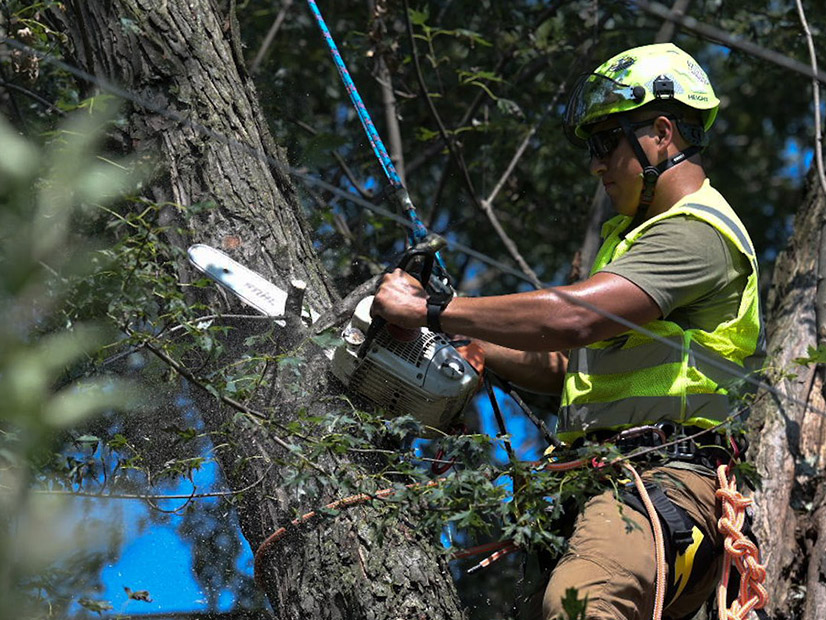LANSING, Mich. — The Public Service Commission last week proposed major changes in its rules for restoring electric service after blackouts, responding to a series of summer storms that left thousands across the state without power, sometimes for days.
The proposed rules were issued less than a month after Gov. Gretchen Whitmer (D) and PSC Chair Dan Scripps said electric providers must improve customer service, in part, because climate change increases the likelihood of severe storms such as those that plagued the state in August (R. 460.701- R. 460.752).
Scripps said work on the proposed rules began a few years ago, following an arctic vortex that hit Michigan in 2019. The PSC was “in a pretty good place” in terms of the drafts before the advent of the storms. With the storms, though, officials stepped up their efforts to get them released, Scripps said.
The proposed rules are a major revision of the state’s service quality rules established in 2004. If approved, the rules are intended to remain in operation until 2030.
Current rules affect utilities; the proposed standards would also cover electric cooperatives.
A new category of operating conditions would be added to the current “normal” and “catastrophic” conditions: a “gray sky condition” in which between 1% and 10% of customers have weather-related power interruptions.
The current expectation that utilities restore power to 90% of affected customers within 36 hours under catastrophic conditions is unchanged in the new rules. But under the new gray skies category, power must be restored to 90% of the customers within 24 hours.
The draft rules would also specify that utilities must relieve first responders who are guarding downed power lines within three hours of the lines being reported down, or within two hours in a metropolitan area, at least 90% of the time under all conditions. Currently, the rules require relief within six hours, or four hours in a metropolitan area.

“I wouldn’t characterize the rules as consensus,” Scripps said in an interview with ERO Insider, predicting complaints from utilities and consumer groups on issues such as the service credits. He said although Michigan’s rules were already strong compared to other states, the new standards would make them stronger.
Many of the new proposed rules are “designed to reflect the realities of how long it takes” to restore power blackouts from weather crises, Scripps said.
Asked if the proposed rules could be seen as criticism of how utilities such as CMS Energy (NYSE:CMS) and DTE Energy (NYSE:DTE) handled their responses to the series of outages following the severe thunderstorms in August, Scripps said, “I think it’s an acknowledgement that we’ve got work to do in our distribution system. The number of outages and particularly the duration of outages when they happened were not where we need to be.
“There’s a fair amount here that I think tightens up our performance standards, and I think that’s important. It reflects what we’ve seen over the last summer, but it also reflects what we need to do as we start to electrify transportation and add loads to the distribution grid. It can’t be a bottleneck to what customers expect and where we need to be as a state.”
The rules could also encourage further steps to harden the grid, such as improved tree trimming and burying power lines. “That’s our hope,” Scripps said. The PSC is planning a technical conference on utility storm response on Oct. 22 as part of its effort to improve the grid.
Camilo Serna, regulatory vice president for DTE Energy, said the proposed rules were “the beginning of a process that would take months,” and that DTE would be part of that process.
The rules must undergo hearings and then be approved by the legislature’s Joint Committee on Administrative Rules before taking effect.
Amy Bandyk of the Consumers Utility Board of Michigan said the proposed rules are an improvement “but don’t go far enough to address Michigan’s continuing problem with electricity reliability.” She said that customers would not receive credits unless they had been without power for days. “Customers should receive credits for all outages, proportional to the length of the outage to provide them some insurance against the harm of an outage and as an incentive for utilities to improve their performance.”



